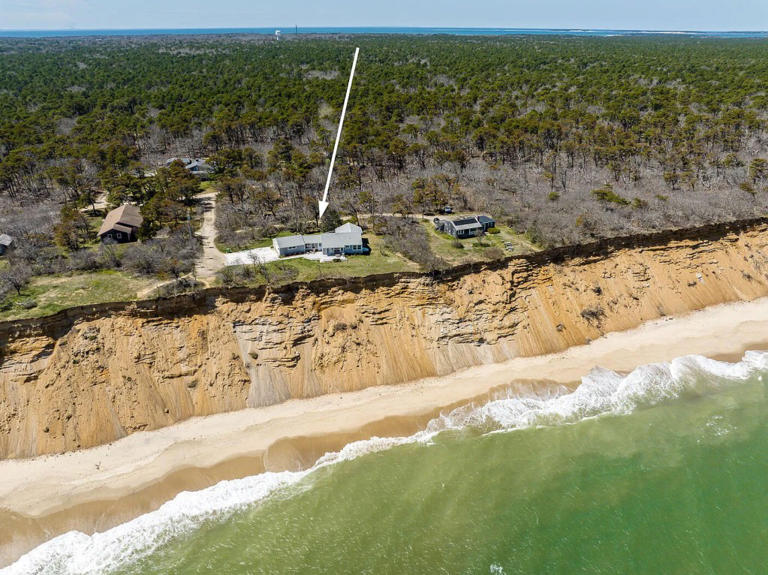A man who is quoted to have said that life’s too short to resist buying a home that might fall off a cliff in a few years has taken ownership of a house with a beautiful view that’s just 25ft (7.6 metres) from a sandy, crumbling cliff.
The man, identified as David Moot, paid $395,000 for the house on Cape Cod on the Massachusetts coast and said he intends to enjoy it while it lasts. The 59-year-old interior painter and designer purchased the sprawling three-bedroom house overlooking the Atlantic Ocean.
Moot’s purchase is one of many that homeowners have been making in recent years as they seek discounted deals on waterfront properties facing imminent submersion due to rising sea levels and eroding coastlines as a result of the climate crisis.
According to Bloomberg, Moot’s purchase of the home was 67% less than the seller’s $1.195m asking price in 2022. Speaking about his purchase of the home, which rests a mere 25ft from a sandy slope, Moot told the outlet: “Life’s too short, and I just said to myself, ‘Let’s just see what happens.’”
Read also: Pacific islands submit proposal for recognition of ecocide as a crime
“It’s going to eventually fall into the ocean, and it may or may not be in my lifetime,” he added.
Stephen Leatherman, a professor and director of the laboratory for coastal research at Florida International University, said: “Along the east coast of the United States, 80% to 90% of the beaches are eroding so it’s only just limited areas where the beach is fairly stable, at least for now.”
Leatherman, who previously lived on Cape Cod, continued: “The average [rate of erosion] has been a little over 2ft a year but that’s just an overall average. And Cape Cod … is more like … about 3ft or more a year, so any rate, it does catch up with you.
“You buy a house this summer because that’s where people go to the beach and at that time of the year, the beach is nice and wide. In the winter, the beach actually narrows if there are winter storms, and that’s when a lot of houses get in trouble.
“This house may look good right now … because the beach is wide. Wait till that beach narrows up and the waves are hitting the edge of that bluff just below the house. It’s a perception problem too, in terms of people understanding this erosion problem,” Leatherman added.
Brian Yellen, a Massachusetts state geologist, also pointed to the coastal bluffs along the east coast where many homes lie.
“Coastlines in places that used to be glaciated, like the eastern US and Canada, as well as much of northern Europe have long reaches of coastal bluffs made up of glacial soils, as opposed to bedrock cliffs,” Yellen said, adding: “While less susceptible to coastal flooding and inundation, as bluffs tend to be high up, these coastlines are particularly susceptible to shoreline retreat, imperiling structures built at the edge of bluffs.”
Story was adapted from the Guardian.
